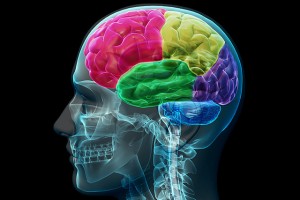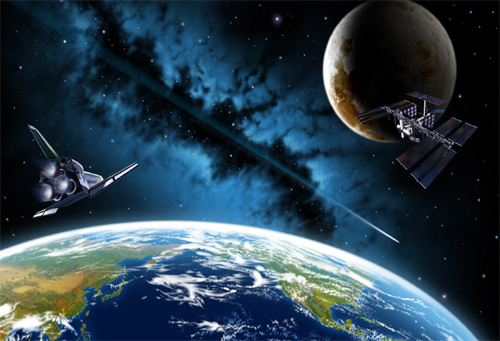 This may seem like a silly question, especially if you don’t intend on flying up into space any time soon. However, researchers have gone the extra mile to find out how the brain reacts to outer space, and the results may surprise you.
This may seem like a silly question, especially if you don’t intend on flying up into space any time soon. However, researchers have gone the extra mile to find out how the brain reacts to outer space, and the results may surprise you.
A new study, which looked at the brains of astronauts before and after spending six months in space, found that brain structure changes when you take a little vacation on the International Space Station. Unfortunately, this negatively impacts astronauts’ ability to think, according to the Huffington Post.
“Changes in brain structure and function may be related to reduced sensorimotor and cognitive abilities during spaceflight,” wrote the authors of the study. “Along with affecting performance in orbit, these changes may impact the long-term health of astronauts, especially if the brain changes substantially during a long-duration mission.”
Neuroscientists continue to look into how the brain adapts to new circumstances and physical changes, also known as “brain plasticity.” This is one of the first studies to look at how space specifically impacts the brain.
“Identifying which changes occur, and whether they remain after astronauts return to Earth, can help scientists and physicians develop effective countermeasures,” the scientists continued. “The investigation addresses key questions posed by the Human Spaceflight Program, including whether structural changes in the brain can be predicted and mitigated, and which methods can effectively monitor cognitive performance during and after a mission.”
Although this report is one of the first of its kind, it is not the last. In fact, one initiative that began back in May 2015 is still ongoing, and it will not conclude until 2018. Its preliminary findings were published in Brain Structure and Function.
“For the first time, this study elucidates alterations in human brain function after long-duration spaceflight,” the team wrote. “More specifically, we found significant differences in resting-state functional connectivity between motor cortex and cerebellum, as well as changes within the default mode network.”
As more research is carried out in the area of space travel and brain function, you may start to take its effects more seriously if you’ve seen NASA’s recent call for astronauts. According to MSNBC, NASA is on the hunt for brave humans to travel to Mars. Only time will tell if people will be deterred by the most recent evidence pertaining to the effects on the brain.
Sources
Brown, Nicole. “NASA looking for new astronauts in preparation for Mars mission.” MSNBC. November 10, 2015.
Gregorie, Carolyn, “Space Missions Have Major Effects on Astronauts’ Brains.” Huffington Post. November 10, 2015.
Seidler, Rachel. “Spaceflight Effects on Neurocognitive Performance: Extent, Longevity, and Neural Bases.” NASA. October 14, 2015.
Van Ombergen, Angelique. “Cortical reorganization in an astronautâs brain after long-duration spaceflight.” Springer. May 12, 2015.
